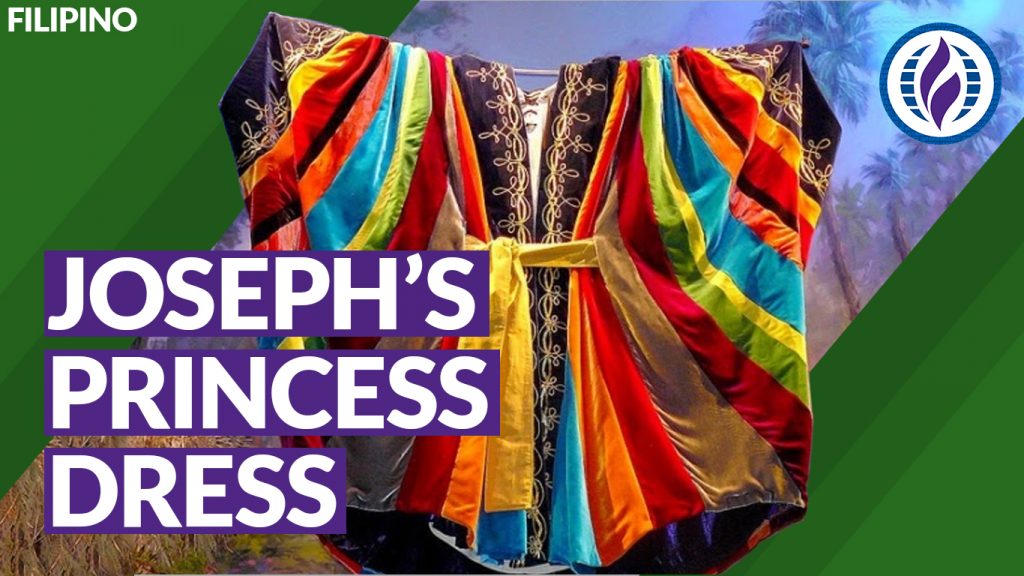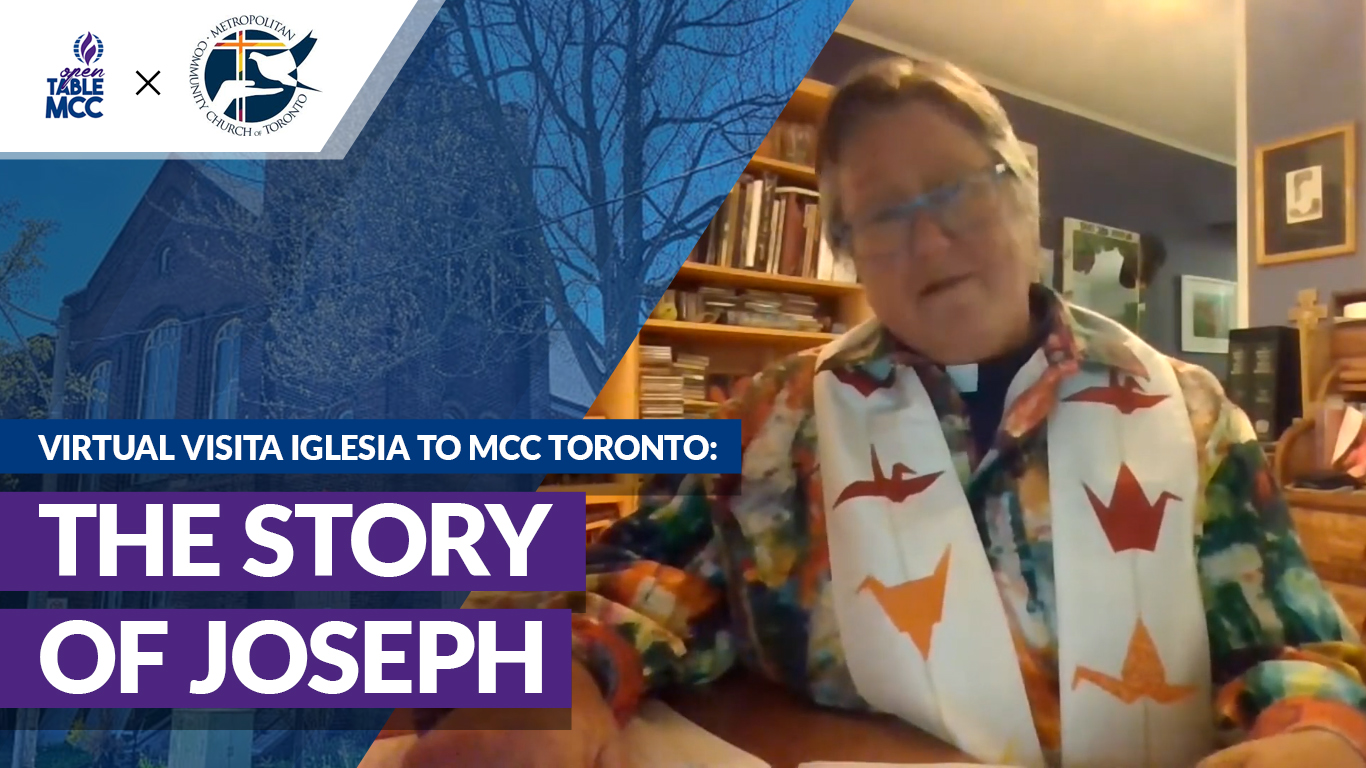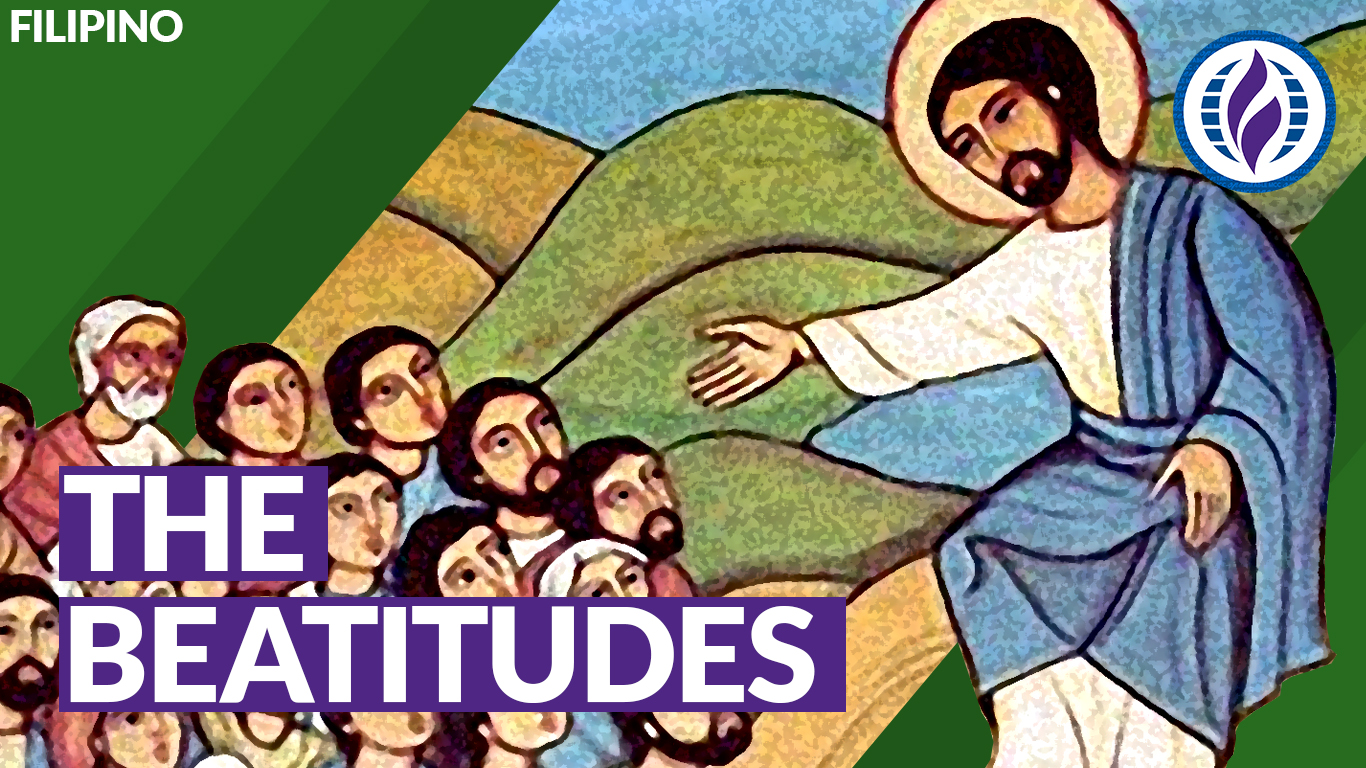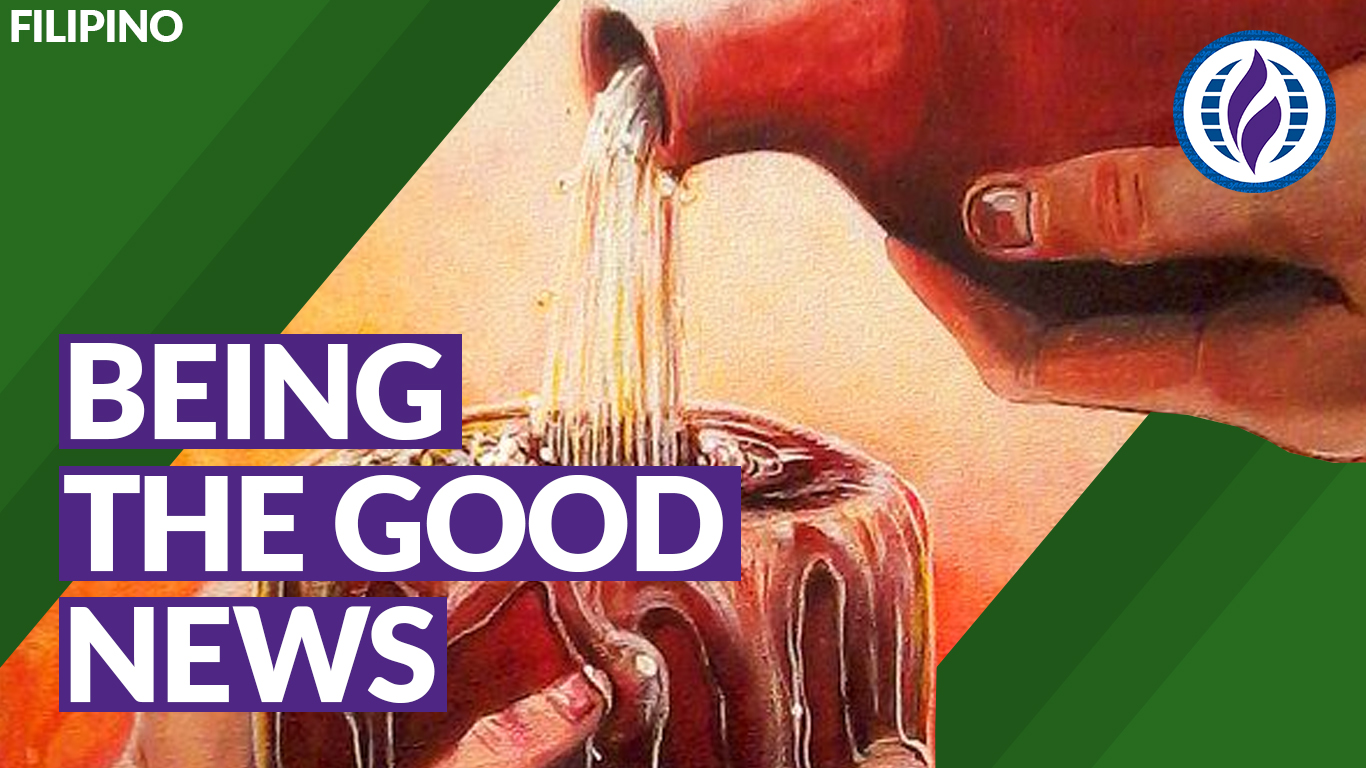Jacob settled in the land where his father had lived as an alien, the land of Canaan. These are the descendants of Jacob.
Joseph, being seventeen years old, was shepherding the flock with his brothers; he was a helper to the sons of Bilhah and Zilpah, his father’s wives, and Joseph brought a bad report of them to their father. Now Israel loved Joseph more than any other of his children because he was the son of his old age, and he made him an ornamented robe. But when his brothers saw that their father loved him more than all his brothers, they hated him and could not speak peaceably to him.
Once Joseph had a dream, and when he told it to his brothers, they hated him even more. He said to them, “Listen to this dream that I dreamed. There we were, binding sheaves in the field. Suddenly my sheaf rose and stood upright; then your sheaves gathered around it and bowed down to my sheaf.” His brothers said to him, “Are you indeed to reign over us? Are you indeed to have dominion over us?” So they hated him even more because of his dreams and his words.
Scripture Reading
Matthew 25:1-13 (NRSV)
The book of Genesis, chapter 37 introduced the story of Joseph the Dreamer, sometimes referred to as the “Joseph cycle,”. It tells us the dramatic tale of Joseph, the favorite son of Jacob, from his betrayal at the hands of his brothers through his descent into slavery, his rise to power in Egypt, and his ultimate reunion and reconciliation with his family.
I had a lot of mixed emotions and thoughts when I was writing my script for this passage. Kasi it’s about the son who is the favorite, as he was the son of old age.
Like Joseph, I had my shining moment when I was the favorite child. Did I actually mention that I was the youngest? Yes, I am the youngest sa aming magkakapatid. And pag youngest kid ka, syempre everyone in the family will see you as this cute kid that needs to be protected. Well, if cute ka na bunso.
So, I remembered that when I was a kid, I was a smart, active kid. How about sa inyo? Matamlay ba kayo? Or active ba kayo sa galawan same ng pagiging active niyo ngayon sa mga bookings? Parang given diba? Na pag baklang bata, talagang napaka high ng energy?
Anyway, ganun ang na remember ko about my childhood: typical queer kid, very participative with the games, jackstone, Chinese garter, tumbang preso, and any other Filipino traditional games. Additionally, I was actually doing really well at school. Because of that, binibilhan ako ng magandang laruan, sapatos. Naalala ko nanay ko nun, nag di-deal siya ng MSE, kasi may mga brochure siya nang kahit ano-anong mga pang retail na gamit, like Tupperware, AVON, Natasha, etc. Tapos, may men underwear section na tinitingnan ko. Anyway, may bag ako nun from MSE na convertable siya to raincoat. And I became the center of attention at school because of my cool bag. I’m sorry, mababaw ang cool level ng mga bata sa public school, baka di maka relate ang mga batang taga private school.
Yun na nga I was like Joseph, the son of Jacob; he was the favorite, and he was loved more than any other of the children because he was the son born of Jacob’s old age. He was even given an ornamented long robe, specially made by his father. The Hebrew word for this ornate robe, “Ketonet Passim” is only used twice in the original texts of the Bible. Once in Genesis to describe the flashy garment, a coat of many colors, and then it’s used in 2 Samuel when talking about what Tamar was wearing, the daughter of King David. Tamar’s coat was described as an ornate dress for virgin princesses. Also note that Tamar lived a thousand years before Joseph.
His father specially made the coat for Joseph, but why? He can actually make anything else for Joseph. It appears that the chapter hints to us that this coat represented the feminine aspect of Joseph, which was rather prominent in his youth. So it’s hinted diba, hindi explicitly implied. We wouldn’t know right away because the English translation obscured it by translating it as “ornamented robe” in the NRSV translation, ornate robe in the NIV translation, and “a coat of many colors” in the ESV translation. But the Hebrew word used is “Ketonet Passim”, which was mentioned in 1 Samuel 13 as a kind of dress for the virgin daughters of the king. At that time, the people did manual labor. However, as Joseph was wearing an expensive princess dress, he might be doing less heavy labor than his other brothers. We heard in the reading that “he was a helper to the sons of Bilhah and Zilpah, his father’s wives”. Tumutulong at katuwang sya nung dalwa pang asawa nung tatay nya, which means household work for girls and women, also representing femininity. His brothers did much of the manual labor, while Joseph, who was in a princess dress, did very little and enjoyed the favor of their parents.
Pero sa isang batang paborito, may mga kapatid silang fault finders? Tama ba? Usually, the reality is that hinahanapan ng mali ng other sibling ang paboritong anak. As Joseph was wearing this colorful, long, ornate robe, his brothers didn’t tease him for wearing the coat. Instead, they were jealous and they hated him, because, in the eyes of their father, there’s nothing wrong with his femininity. Also, Joseph had brought a bad report to his father about his brothers; hindi naman sinabi na hindi totoo ang report, but still, the brothers hated him. Talk about family drama!
I think some of us here, queers, have the same kind of narrative as Joseph, right? Lumaki na gumagawa ng household chores, mahinhin sa bahay, malamya, pero kahit ganun, we are reliable sa parents natin, kasi in this modern day, hindi naman tayo nag mamanual labor. So ung mga kuya natin at this modern time, they will also need to participate with household chores, pero ang nangyayari in some of our family realities, hindi naasahan ang mga kuya sa gawaing bahay. Usually, pag bakla, silang-sila ang naaasahan sa gawaing bahay. Tama? Tapos bigay na bigay ka na sa gawaing bahay, pero ginagawa paring issue ang iyong SOGIE, right? The audacity of these people.
Okay, let’s go back to the scripture reading that we have, so yun na nga may drama, nag kainitan ang magkakapatid. Pero isang araw, may dream si Joseph. It is important to note that these dreams of Joseph did not come out of his own head. They were not projections of his own self-importance. They were from God. If you know the whole story, you know some of these dreams…
For this scripture reading, we are only introduced to one of Joseph’s dreams in verses 6-7. “There we were, binding sheaves in the field. Suddenly my sheaf rose and stood upright; then your sheaves gathered around it and bowed down to my sheaf.”
Joseph decided to share it with his brothers. In verse 8, his brothers had the question, “Are you indeed to reign over us? Are you indeed to have dominion over us?”. It’s like they are wondering how he can become a ruler if hindi naman siya naasahan sa mabibigat na gawain. His brothers are underestimating his capabilities, and they can’t believe his dream can come true. Not only that, they felt even more offended and hated him, all the more to the point that later in the story they wanted to kill him, but one of the brothers, Reuben, said, wag natin syang tegehin. Ibenta na lang natin sya bilang alipin. Naalis na natin yung favotire princesesa, kumita pa tayo.
This story is almost 3000 years old, yet it is as relevant today as it was then, and it is relevant even for us in the trans community and the larger LGBQIA+ community. Kasi hanggang ngayon may ganito pa ring mga family drama to the extent na sinasaktan, pinapalayas, at pinagkakakitaan ang mga mga trans and other queer children ng kanilang mga pamilya.
Base sa mga pangyayari, I concluded 3 lessons from our scripture reading.
1: Support your siblings with their aspirations and encourage them to develop their potential.
Joseph was indeed destined to rule and be bowed upon. Sorry, spoiler sa mga taong hindi alam ang story ni Joseph the Dreamer. As the story progresses, Joseph the Dreamer will rule Egypt. His actions put him in this position. However, it was difficult as he faced a lot of challenges getting into that position, na puwede naman sana, matulongan siya ng kanyang mga brothers and family. Pero Joseph wasn’t credible to his brothers, as they had an issue with him being feminine, and that contributed to the challenges he faced.
This narrative is similar to how we, as queers, have gone through a lot of challenges to get to the point where we are now. Some people will say, be grateful for your challenges, because they made you stronger and got you to where you are now.
May isang reel akong nakita sa social media, sabi daw, whatever is trying to kill him, should do it’s job already, kasi ayaw niya nang maging stronger, gusto niya nlang mamatay. It’s funny, but to some of us, that’s a reality.
Can we not romanticize suffering? Especially for us queers, na hindi naman pinili ang magdusa, kasi di naman natin pinili ang maging accla, this is what God has given us. It’s a fact that some queer people who have suffered from discrimination and prejudice and are marginalized are not here with us anymore. And for some of us here, I believe it’s right to say na kung hindi tayo nagdusa, we could have achieved our wins in life sooner.
So please, support your queer siblings, please help them with their aspirations and encourage them. Tanggalin natin yung mindset na ah kasi pag bakla, mag pa-parlor lang yan, or magiging liability lang yan pag laki.
2: To be a humble brother or sister in our own families, chosen family, and community.
We can observe na humility has been a recurring theme in our previous scripture readings. As per the previous preachings, humility is often regarded as the cornerstone of genuine human connections. However, in the passage that we have today, it is more directed to our siblings, as it plays a crucial role in fostering a harmonious and supportive relationship.
At the heart of humility lies a selfless acknowledgment of one’s strengths and weaknesses and a genuine regard for the well-being of others. If we know our capabilities and limitations, we don’t appear hateful to our siblings. Siblings who embody humility contribute immeasurably to the fabric of our community by creating safe spaces for everyone.
3: To love our brothers and sisters equally despite differences and embrace diversity.
In a family, each member is unique, with their own set of strengths, weaknesses, and quirks. Embracing equality ensures inclusivity in a community that nurtures every sibling, making them feel valued for who they are and fostering an environment where individual differences are not only accepted but celebrated.
Discrimination among siblings, whether based on gender, age, or other factors, can result in resentment and rivalry. Choosing to love each sibling equally helps to dismantle division, as everyone of us plays an integral role in our community. This way, rather than becoming competitors, we become allies with each other. Di porket, wala kayong common interests, or they are from certain groups of race, color, and gender, you will not give them the same treatment that you usually give other people. We should be a catalyst for anti-discrimination, kaya sali tayo sa rally for the SOGIE anti-discrimination bill.
My final words:
I want to remind everyone to be responsible and take charge of each of our own narratives. Accla, mahirap maging bakla. When I was sharing my struggles growing up as a transwoman with a group of young queer students, I was asked, “ate, what’s your happiest moment as a transgender person?”. Nahirapan akong sagotin ang question..Ang nasabi ko nalang, Uhhmm, I guess I became an expert in crisis management? Pero, I realized when writing this sermon, okay lang pala wala. Hello, that’s my gender identity, bakit? Ang mga hetero people ba, are they supposed to have a happy moment to be celebrated sa pagiging cisgender? Hindi naman diba? I don’t think our happiness is dependent on our gender identity. Our gender identity can only be a tool that can lead us to the narratives to which we aspire.
As we observe the Transgender Day of Remembrance, let us remember and honor the lives lost and commit ourselves to creating a world where every person, regardless of their gender identity, can live without fear, discrimination, or violence. I hope that the transgender individuals who are still with us today can live in a world where, hindi nalang sila mag sasabing, the agenda is to survive. Let us foster equal love and support each of our siblings as fellow children of God, so that we can look forward to our new agenda, which is to love and support one another and to be like Jesus, a champion of justice.
Podcast: Play in new window | Download
Subscribe: Apple Podcasts | Spotify | RSS



